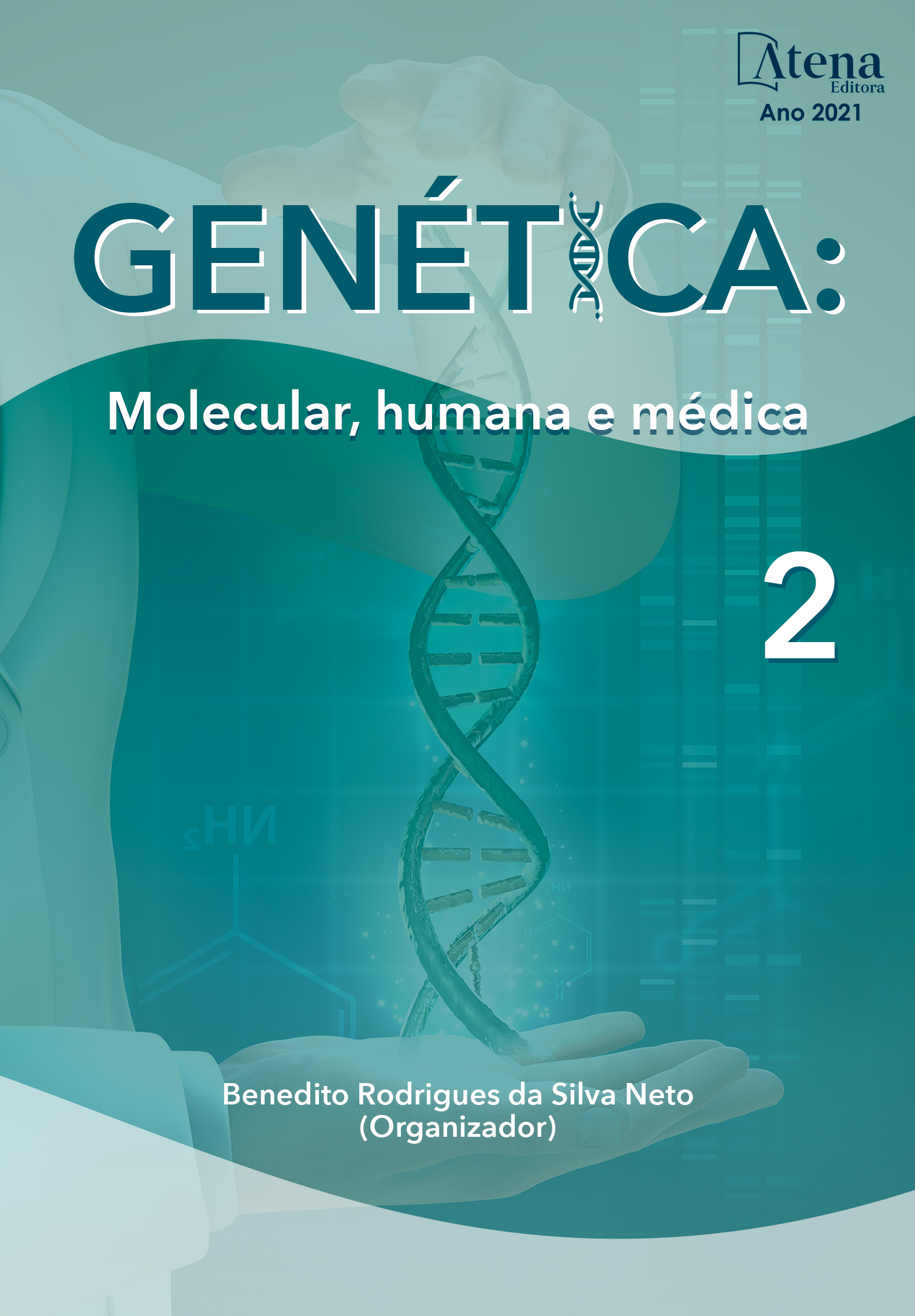
ASPECTOS GENÉTICOS DA FIBROSE CÍSTICA: UMA REVISÃO DE LITERATURA
Introdução: A Fibrose Cística (FC) é a doença genética mais comum na população caucasiana, com prevalência de 1/3000 e mais de 2000 mutações documentadas. De herança monogênica e autossômica recessiva, a FC é decorrente de uma mutação no regulador transmembrana, CFTR, que age como canal iônico e está presente no tecido epitelial dos mais diversos órgãos. Sua disfunção acarreta produção de secreções espessas que tendem a obstruir os ductos dos órgãos afetados. O objetivo do trabalho é revisar a literatura a respeito dos aspectos genéticos da FC. Metodologia: Foi conduzida uma busca nos bancos de dados científicos eletrônicos LILACS, MEDLINE e Web of Science. Os descritores utilizados foram: “cystic fibrosis”, “genetic heterogeneity”, “CFTR protein” e “molecular targeted therapy”. Foram utilizados 34 artigos nesta revisão, os quais foram analisados e sintetizados de forma reflexiva, a fim de obter informações consistentes e relevantes para a revisão. Resultados: A FC, apesar de ser monogênica, conta com uma herança genética complexa. O grande número de mutações a causam, assim como a quantidade de genes modificadores que interagem com as disfunções do CFTR, fazem da FC um grande desafio clínico. A FC tem sido alvo de inúmeras pesquisas para terapias alvo e genéticas que tem melhorado a sobrevida dos pacientes, causando aumento da expectativa de vida. Conclusão: O avanço da biotecnologia traz perspectivas promissoras para o tratamento da FC. Para o futuro, os grandes desafios são o desenvolvimento de terapias alvo e de terapias genéticas capazes de reduzir a morbimortalidade e mudar a história natural da doença.
ASPECTOS GENÉTICOS DA FIBROSE CÍSTICA: UMA REVISÃO DE LITERATURA
-
DOI: 10.22533/at.ed.7512114103
-
Palavras-chave: Fibrose cística, Proteína CFTR, Genética, Terapia alvo, Terapia genética
-
Keywords: Cystic Fibrosis, CFTR Protein, Genetics, Targeted therapy, Gene therapy
-
Abstract:
Introduction: Cystic Fibrosis (CF) is the most common genetic disease in the Caucasian population, with a prevalence of 1/3000 and more than 2000 documented mutations. With monogenic and autosomal recessive inheritance, CF results from a mutation in a transmembrane regulator, CFTR, which acts as an ion channel and is present in the epithelial tissue of the most diverse organs. Its dysfunction leads to the production of thick secretions that tend to obstruct the ducts of the affected organs. The objective is to review the literature regarding the genetic aspects of CF. Methodology: A search was conducted in the electronic scientific databases LILACS, MEDLINE and Web of Science. The descriptors used were: “cystic fibrosis”, “genetic heterogeneity”, “CFTR protein” and “molecular targeted therapy”. Thirty-four articles were used in this review, which were analyzed and synthesized in a reflective way, in order to obtain consistent and relevant information for this article. Results: CF, despite being monogenic, has a complex genetic inheritance. The large number of mutations that cause the disease, as well as the amount of modifying genes that interact with CFTR dysfunctions, make CF a great clinical challenge. CF has been the target of numerous researches for targeted and genetic therapies that have improved survival, causing an increase in life expectancy. Conclusion: The advance of biotechnology brings promising prospects for the treatment of CF. For the future, the great challenges are the development of targeted therapies and gene therapies capable of reducing morbidity and mortality and changing the natural history of the disease.
-
Número de páginas: 21
- Maria Denise Fernandes Carvalho
- Ticiana Freire Bezerra
- Guilherme Pinho Mororó
- Lucas Oliveira Sibellino
- Raquel Matoso Freire
- Lucas Lessa de Sousa
- Morgana Cléria Braga Monteiro
- Marla Rochana Braga Monteiro
- Lídia Vieira do Espírito Santo
- Vitor Araújo Marinho
- Amanda Holanda Cardoso Maciel


